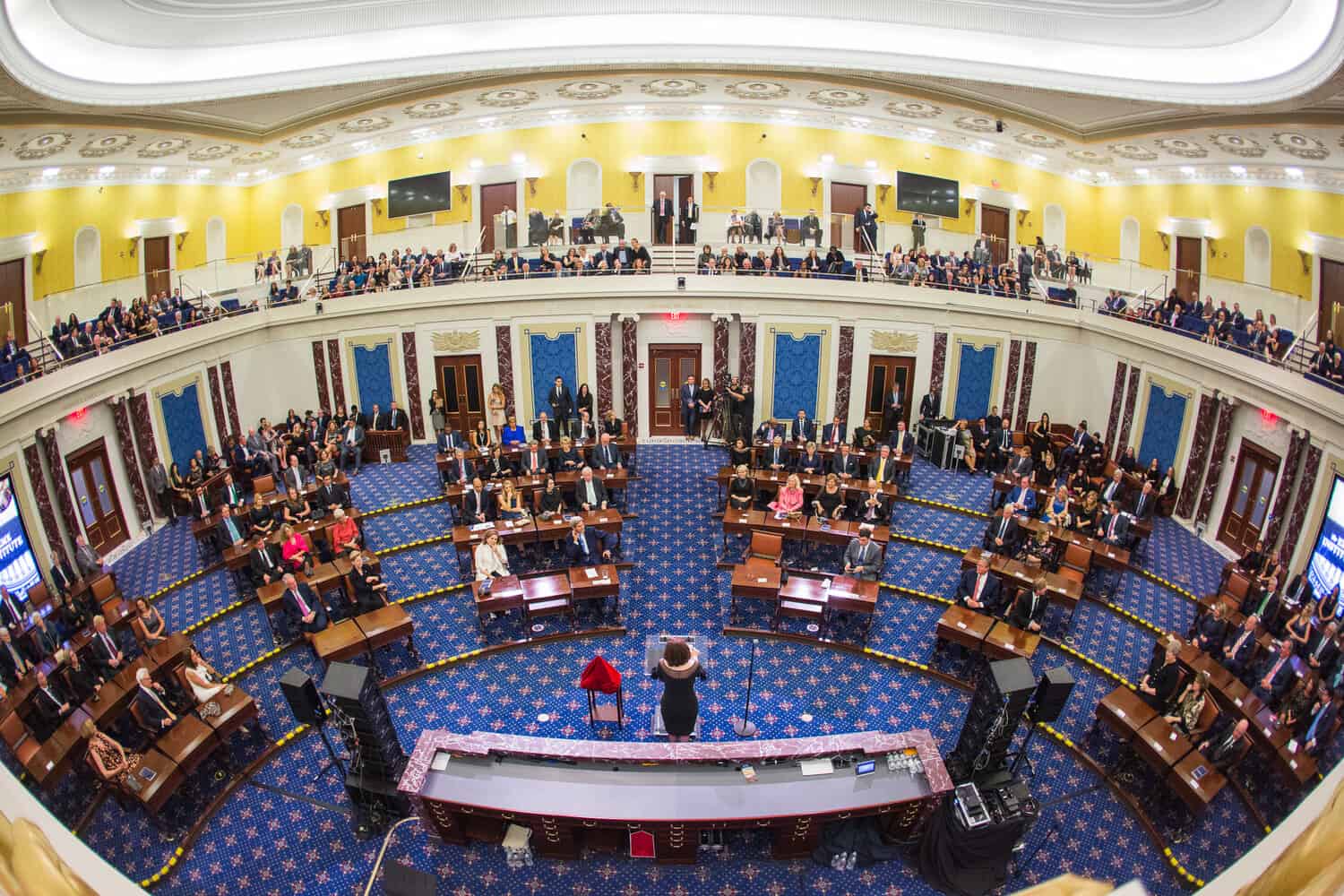
Fred Messner is a student at Harvard Law School.
This week, the House Judiciary Committee will hear testimony about “how forced arbitration keeps victims of sexual violence and sexual harassment in the shadows.” As Bloomberg Law reports, despite widespread acknowledgement of the unfairness of forced arbitration and despite the nationwide conversation about sexual harassment prompted by the #MeToo movement, employers continue to mandate confidential, individual arbitral proceedings for sexual harassment and discrimination complaints. But, Linda Lipsen, CEO of the American Association for Justice (AAJ) explained, “Members of Congress from both sides of the aisle are recognizing the groundswell of opposition to this corporate abuse.” In particular, the Senate Judiciary Committee recently advanced a bill that would ban enforcement of arbitration agreements if a worker is alleging workplace sexual harassment or assault. The House hearing can be seen as part of this same trend.
Looking outside of the United States, the American Prospect reported today on a massive wave of strikes that Scottish rail workers, sanitation workers, school employees and others had planned to coincide with the COP26 climate conference held in Glasgow over the past two weeks. The workers, members of a variety of different U.K. unions, sought wage increases, improved working conditions, and the “restoration of public services that [had] been cut due to austerity.” Although the Scottish government managed to avert some of the strikes with a contract offer on the eve of the conference, some sanitation and railway workers went forward with their planned actions throughout the conference. The Prospect’s article is worth exploring in full for its in-depth, play-by-play narration of the collective bargaining process in the U.K. context.
In a similar review of the nuts-and-bolts of collective bargaining, The Strike Wave posted a fantastic and thorough retrospective of the International Alliance of Theatrical Stage Employees’ (IATSE’s) basic agreement negotiations over the past three decades. The entire article is illuminating, but most striking is its conclusion that “[o]ver the past 30+ years, . . . IATSE in its Basic Agreement negotiations has traded away working conditions and power over how the job is done for wage increases and maintenance of benefits.” Reinforcing this state of affairs, the post argues, is the consolidated “one-party state[]” union that the IATSE, like many other unions, has become. Along similar lines, the Wall Street Journal reported yesterday on the upcoming election for the presidency of the InternationalBrotherhood of Teamsters. Whoever is elected to the five-year presidential term, the Journal explains, will be tasked with concluding national agreements for workers at DHL and UPS, as well as continuing the struggle for representation at Amazon.
Finally, John Oliver hosted a full twenty-minute segment on union busting last night, shining a spotlight on the abusive—though, unfortunately, often legal—tactics employers use to thwart their workers efforts to organizes. The segment can be seen as part of the broader increase in the mainstream media’s interest in and receptiveness to labor concerns—and, of course, the heartening recent rise in public support for labor unions. Whether these favorable trends can find expression in policy remains to be seen.






Daily News & Commentary
Start your day with our roundup of the latest labor developments. See all
February 17
San Francisco teachers’ strike ends; EEOC releases new guidance on telework; NFL must litigate discrimination and retaliation claims.
February 16
BLS releases jobs data; ILO hosts conference on child labor.
February 15
The Office of Personnel Management directs federal agencies to terminate their collective bargaining agreements, and Indian farmworkers engage in a one-day strike to protest a trade deal with the United States.
February 13
Sex workers in Nevada fight to become the nation’s first to unionize; industry groups push NLRB to establish a more business-friendly test for independent contractor status; and UFCW launches an anti-AI price setting in grocery store campaign.
February 12
Teamsters sue UPS over buyout program; flight attendants and pilots call for leadership change at American Airlines; and Argentina considers major labor reforms despite forceful opposition.
February 11
Hollywood begins negotiations for a new labor agreement with writers and actors; the EEOC launches an investigation into Nike’s DEI programs and potential discrimination against white workers; and Mayor Mamdani circulates a memo regarding the city’s Economic Development Corporation.